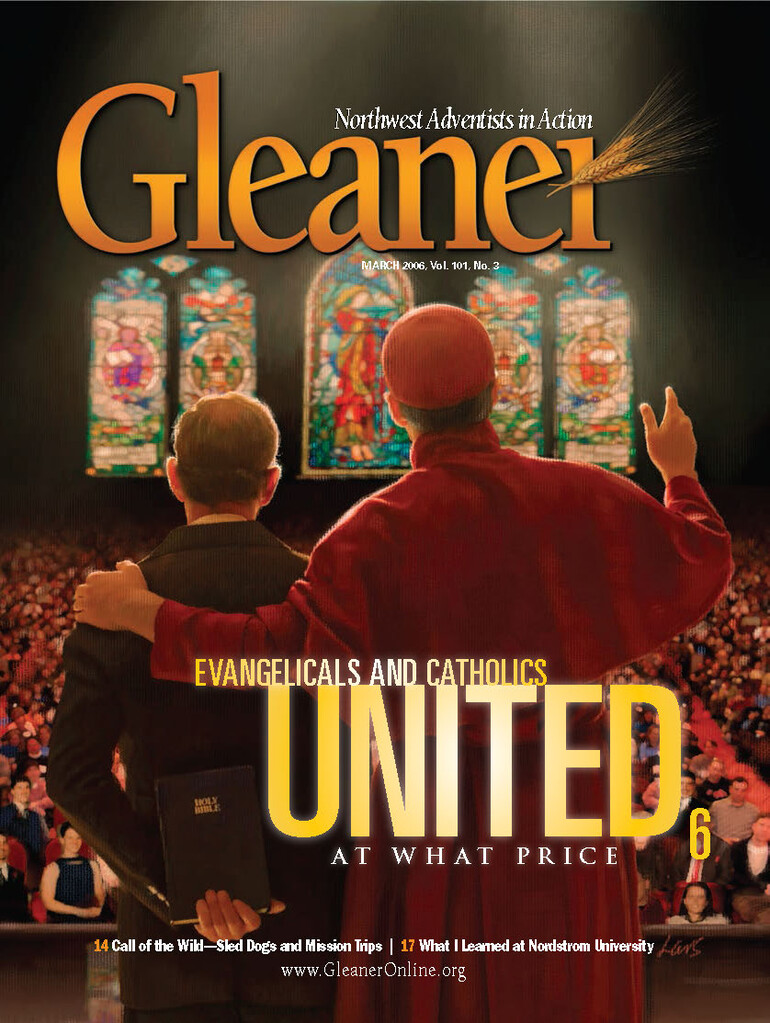It was the midst of the Reformation. Men like John Knox, Martin Luther and John Wesley had shaken the Roman Catholic Church to its foundation. But a sincere group of cardinals, archbishops, bishops and priests determined that if the church were to regain its credibility and power, it would have to rely on the Bible and the Bible alone for its doctrine and its authority.
The church leaders were called together December 13, 1545, for what became known as the Council of Trent. The issue was debated intensely. Some pleading that the church must elevate the Scriptures as the final authority, while others disapproved, saying the church must rely on Scripture and tradition. The theological battle was waged for 18 years.
A Tragic Mistake
Finally in 1563, fatigued and frustrated, a leading theologian, the Archbishop of Reggio, addressed the council in these words. “The authority of the church could, therefore, not be bound by the authority of the Scriptures, because the church had changed … the Sabbath into Sunday, not by the command of Christ, but by its own authority” (Cannon on Tradition, p. 263).
In essence, this archbishop was saying that if the Roman Catholic Church decided to stand on Scripture alone, it would have to return to keeping the seventh-day Sabbath. This was a watershed speech followed by a significant decision. The Council of Trent voted on December 4, 1563, that the church should accept the authority of both Scripture and tradition. Furthermore, if there was a conflict between the two, then tradition should take preeminence. What a tragedy!
Today Protestant churches in general and the Adventist Church in particular should learn a lesson from the Council of Trent. We face the same debate. When Scripture comes in apparent conflict with any discipline, what must be the final authority?
Observation or Revelation
If it appears that science and archeology do not agree with the biblical literal 24-hour, seven-day contiguous creation or a global flood, then which position should we accept? In other words, is it observation or revelation upon which we take our stand?
Despite the fact that many Bible scholars do not believe the Genesis account of creation, they do believe two things about Moses’ writings. First, that he was an incredibly gifted writer. And second, that Moses believed what he wrote was true, but he was just uninformed.
Does it makes you wonder, however, that if what Moses recorded was inaccurate, why Christ didn’t correct it? Instead He said, “But since you do not believe what he [Moses] wrote, how are you going to believe what I say?” (John 5:47 NIV). And in reality, Jesus was the only one present when creation took place.
Maybe if Christ were here on earth today, he would say to some of the scientists and archaeologists that challenge the biblical record as He said to Job, “Where were you when I laid the foundations of the earth?” (Job 38:4).
So to each of us comes the decision as it did to the religious leaders at the Council of Trent, “What authority does the Bible have for me?” In areas of Scripture versus tradition, we’ve got that pretty well figured out. Could it be that in areas of science and archeology, the devil still wants the Scriptures to take second place? Do I put my trust in observation or revelation?
Could it be that now 500 years after the Council of Trent our church is facing the same test? Today we believe we are so much more sophisticated, advanced, and intelligent we couldn’t fall for the same deception of the devil. Or could we?
Maybe we better ask ourselves the question again in the words of the Hewlett Packard motto, “Do we know what we already know?”
Evidence Plus Faith Equals Assurance
I’d be the first to admit that in areas of science and archeology we don’t have all the answers. We don’t claim to have ultimate proof. But there is sufficient evidence, if you want it, to still believe that the biblical record is true. And, evidence plus faith equals assurance.
For me, that is how I can have peace in allowing Scripture the position of final authority.










